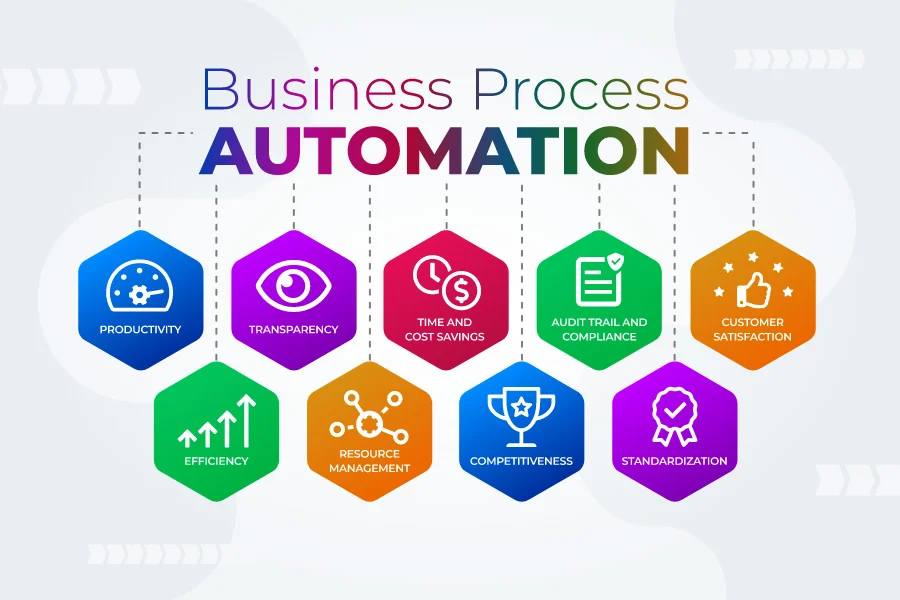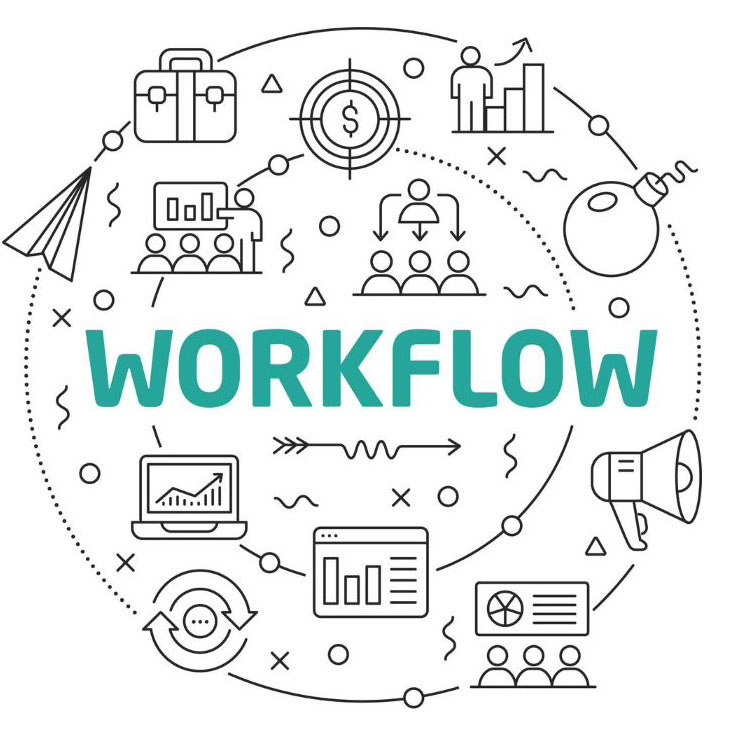Custom Workflow Automation Services
Unlock Efficiency, Accuracy, and Growth with Custom Workflow Automation
Tailored to Your Business
Seamless Integration
Enterprise-Grade Security
Scalable & Future-Proof
Cost & Time Savings
Services We Offer In Workflow Automation
Workflow Automation Consulting
Process Mapping and Analysis
Workflow Automation Strategy
Workflow Design and Development
Integration Services
Data Management Services
Customization Services
Training and Support Services
How Our Automation Solutions Transform Your Operations
Accelerated Processes
Error Reduction
Better Collaboration
Actionable Insights
Proven Results
Expertise in n8n & Modern Automation
Full Lifecycle Support
Migration Made Easy
5-Star Client Satisfaction
Why Leading Businesses Choose Us
Workflow Automation Solutions
Business Process Management Automation
Streamline business processes to accelerate operations, reduce errors, and boost efficiency.

Document and Data Management Automation
Automate document and data handling to save time, improve accuracy, and ensure compliance.

Sales and Marketing Automation
Automate sales and marketing workflows, from lead nurturing to campaign reporting.

Human Resources Automation
Automate HR processes like recruitment, onboarding, attendance tracking, and approvals.

Powerful Workflow Automation Solutions
Optimize your business processes with tailored solutions.
Why Choose Us for Your Workflow Automation Need
Roy Singh
Logistics Manager
Phillip Wright
Systems Manager
Dan Tipton
Digitization Program Specialist
Marcos Faustino
Systems Manager
Workflow Automation Process
Consultation
Design
Implementation
Training
Optimization
Frequently Asked Questions
1. What is custom workflow automation?
Custom workflow automation is the process of designing and implementing automated workflows tailored to the specific needs of a business. Unlike off-the-shelf solutions, it is flexible and aligns with your unique processes, optimizing performance.
2. What's the difference between custom and off-the-shelf workflow software?
Custom workflow automation software is designed specifically for your business, adapting to your unique processes and scaling with your needs. Off-the-shelf software requires you to adjust your processes to fit the available templates, which may not fully meet your requirements.
3. How does workflow automation help businesses?
Workflow automation helps businesses optimize processes, reduce manual effort, decrease errors, improve performance, and allow employees to focus on strategic tasks. It also enhances collaboration, ensures regulatory compliance, and provides better visibility into business operations.
4. What types of workflows can be automated with custom solutions?
Custom solutions can automate various types of workflows, including document management, approval processes, task assignment, data entry, customer onboarding, inventory management, and more. Any repetitive or rule-based process can be automated.
5. How do I determine if my business needs custom workflow automation?
You may need a custom solution if your business has complex or unique processes that off-the-shelf solutions cannot adequately address. Signs include frequent manual intervention, high error rates, scalability issues, or requirements for advanced workflows.
6. What are the essential features of custom workflow automation software?
Essential features include: visual workflow design, no-code or low-code interfaces, integration capabilities with existing systems, scalability, security and compliance features, analytics and reporting tools, and support for complex logic.
7. How do I choose the right custom workflow automation software or provider?
When choosing a solution, consider: the provider’s experience and expertise, flexibility and customizability, ease of use, integration capabilities, scalability, cost, support and training, as well as customer reviews.
8. How can businesses ensure a smooth transition to custom workflow automation?
To ensure a smooth transition, businesses should: involve all stakeholders in the planning process, clearly identify the workflows to be automated, select the right tools and providers, train employees, thoroughly test before deployment, and plan for ongoing support.
9. What metrics prove my custom workflow solution is successful?
Success metrics include: reduced processing time (e.g., cycle time), decreased error rates, improved process efficiency, cost savings, enhanced employee productivity, increased customer satisfaction, and better regulatory compliance.






